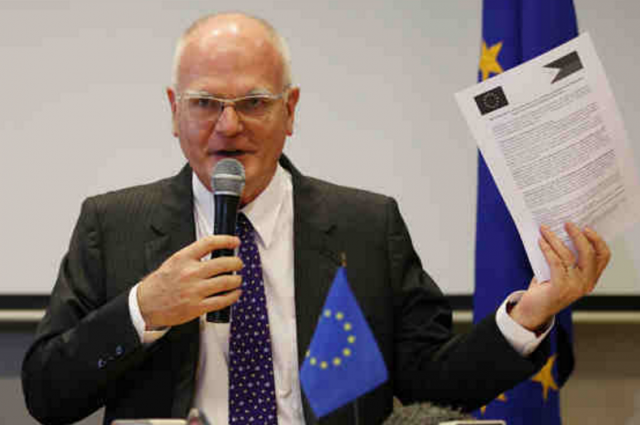
MANILA – The Philippine Competition Commission (PCC) plans to raise by June the threshold for deals that require regulatory approval as part of new mergers and acquisitions (M&A) rules.
During a forum on Wednesday organized by the European Chamber of Commerce of the Philippines, PCC Chairman Arsenio M. Balisacan said the antitrust body is preparing within this semester a proposal that will jack up the P1-billion threshold for reporting M&A deals.
“That threshold has been around for some time. The economy is growing very fast, inflation has not been zero so we have to take account of the changing structure of the economy as well as the rate of growth, inflation,” Mr. Balisacan told reporters after the forum.
He declined to provide a range for the new threshold since this is still being studied by the commission.
The private sector has been batting for a higher notification threshold since the P1-billion level was deemed too low and could over-burden the competition agency, spelling delays for companies engaged in M&A transactions.
In the same forum, Solomon M. Hermosa, head of legal and compliance at Ayala Corp., said competition laws have not affected the operations of the conglomerate, but the process has added another level of regulation that has “slowed down” growth initiatives through acquisitions and joint ventures.
The PCC was organized under Republic Act No. 10667 or the Philippine Competition Act of 2015. Signed into law in 2015, the measure prohibits abuse of dominant position and anti-competitive M&A, among others.
Other M&A rules targeted for release include internal guidelines for early termination of cases by March as well as rules on joint ventures and exemption from compulsory notification in the second quarter.
So far, the PCC has been notified about 135 transactions worth P2.2 trillion, with nine deals under various stages of review.
The PCC chairman said the forthcoming rules are not meant to place additional regulatory burden on businesses.
“The PCC is all too aware that onerous rules can stifle business activity and impede the entry of competition,” Mr. Balisacan said.
“Indeed, on the contrary, the PCC is working to establish these frameworks to ensure the speedy and transparent processing of transactions that, from the onset, do not appear to pose any significant risk on healthy market competition.”
MORE RULES
With the end of the two-year transition period last year, the PCC’s technical working group is preparing the rules on leniency, forbearance and inspection orders that are considered critical components of its enforcement mandate.
The leniency rules to be ready by April will bolster the commission’s ability to combat cartels by granting immunity from suit or reduction of any fine which would be imposed on a participant in anti-competitive agreements in exchange for the voluntary disclosure of information.
The PCC is also crafting inspection guidelines that will authorize it to search business premises and other offices where it reasonably suspects that documents or records related to investigations are kept. The rules are targeted to be drafted by May to be presented to the Supreme Court for consideration and adoption.
Likewise, rules on forbearance will be completed by July. The commission may forbear from applying RA 10667 provisions for a limited time on an entity or group of entities that have met specific, stringent conditions.
The PCC has received 91 queries and informal complaints on possible anti-competitive conduct. The regulator’s Competition Enforcement Office has undertaken seven preliminary inquiries, with one ongoing and six having advanced to full administrative investigation, of which four are under way.
Melissa Healy, competition law specialist at multinational law firm Baker McKenzie’s Singapore office, lauded the PCC’s efforts to engage with industries, collaborate with government agencies and learn from regulators in other jurisdictions so that it can come out with rules that are more suitable in the local setting.
“As the economy is growing it becomes even more important to secure a level playing field where domestic companies and foreign companies all compete on an equal footing,” European Union Ambassador to the Philippines Frank Jessen said.









